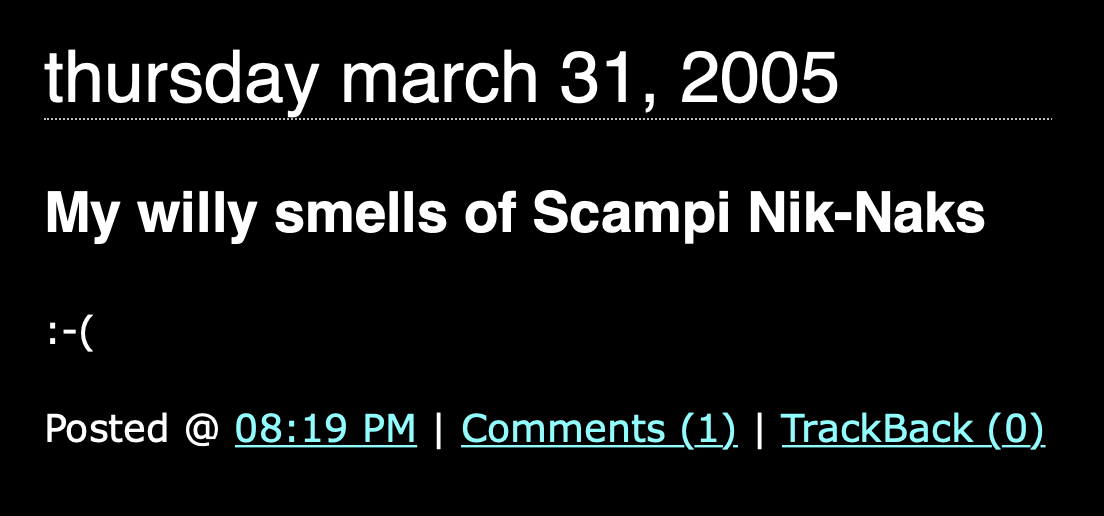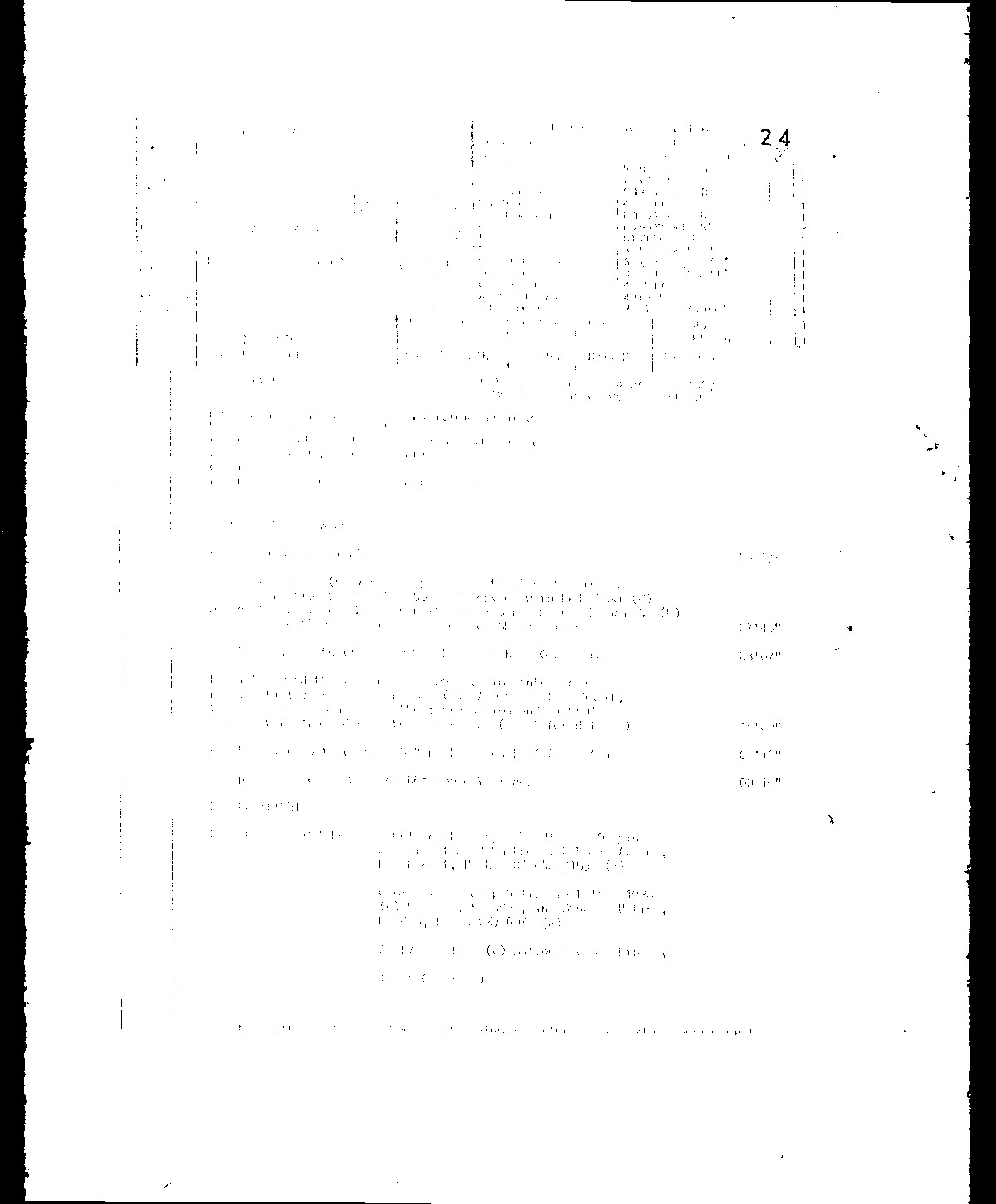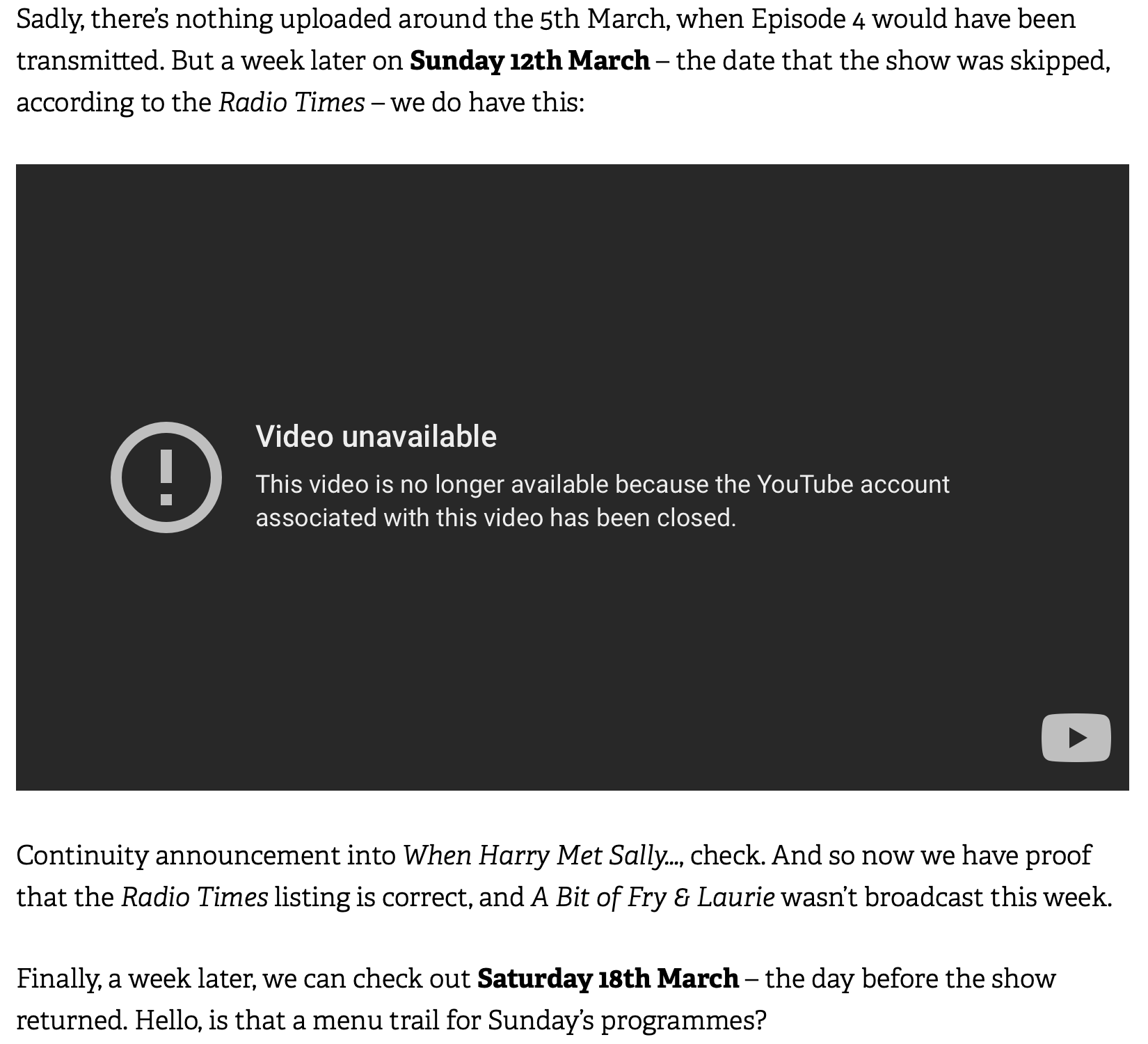Paul Hayes, “Mopping Up… Or Moping Up…?”:
“Am I just a worthless parasite, leeching off other people’s creativity?
It’s a paranoia which does seize me, sometimes. Not often; not all the time. But last night, watching last night’s very enjoyable return of Doctor Who, I was at one point towards the end overcome with that melancholy feeling of knowing I could never, ever do this. I could never do what Russell T Davies does. […]
But that worry does take hold of me, every now and then. I’m so proud of writing books and articles about this show, making radio pieces about it. Proud that I can be a tiny little part of it in my professional life, be engaged with it and share that engagement. But is it all just worthless? Would I not be better off trying to create and do something of my own? Am I just a laughable figure, building so much of my life around something to which I have made absolutely no contribution whatsoever, and have never had anything to do with?”
The answer, of course, is that Paul Hayes is the very opposite of either a worthless parasite or a laughable figure, having done incredible work when it comes to documenting Doctor Who. But this is obvious, and Paul knows it. The rest of his blog post is a brilliant analysis of exactly why researching and documenting a show is a worthwhile thing to do, and I highly recommend you read it.
And yet… I know exactly what he means. And I think most people who make things about other people’s work feel like this at times. You can logically know that what you do is worthwhile, can fully defend someone else from worries like these… and yet still feel that troublesome pang when it comes to yourself. Not all the the time. Just occasionally.
If I’m brutally honest, I sometimes have slightly darker worries about myself: that my writing is about trying to have control over the shows I loved as a kid. I’m very proud of this piece on Knightmare; it was everything I had floating around in my head for years, and managed to write about at a level which I don’t always manage. It’s one of the very best things I’ve ever done. But there is definitely a certain amount of trying to control and compartmentalise my feelings about the show. And perhaps, a little of trying to own a part of it.
Even as I write that latter remark, it seems a foolish thing to accuse myself of. Why can’t writing things like that simply be a positive thing? Why does my brain attempt to turn it into something unpleasant? But these are the cynical things you worry about, when you spend a long time writing about other people’s work, and not making anything which stands on its own.
Because sometimes, I wonder what might have happened. If I hadn’t had the confidence kicked out of me at secondary school. A time when I showed vague hints of promise in drama class… only to be stamped down on. If only I could have been one of those people who managed to stop bullies by “making them laugh”. The kind of thing you read about in interviews with very, very funny people. The Platonic Ideal of how to deal with that kind of nonsense.
I couldn’t do it. I reacted by shrinking in on myself instead.
None of which, in 2024, is especially useful. But it’s something I’m pondering at the back of my head. For many reasons, I haven’t had the best start to the year. I think I may need some kind of outlet for creativity which isn’t just writing about other people’s creativity. Exactly what, I don’t know, beyond a few stray thoughts. And if those stray thoughts cohere into something bigger, it won’t be anything I’d put in public for a very long time, if ever.
But I think I might need something.




